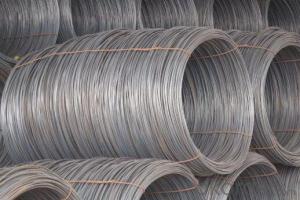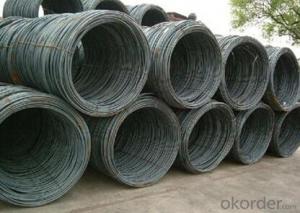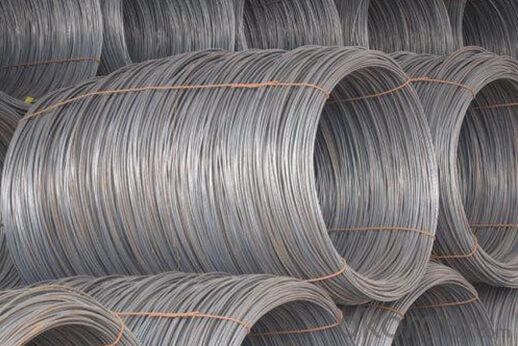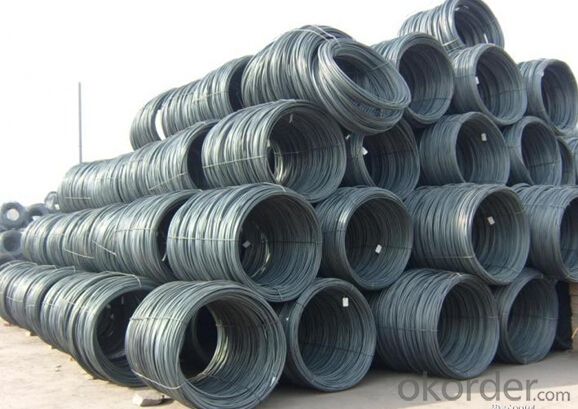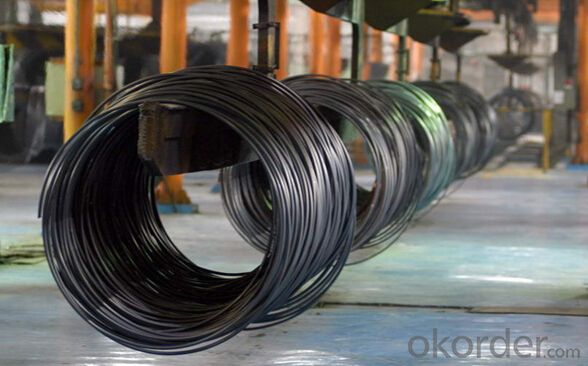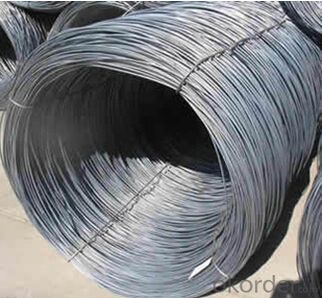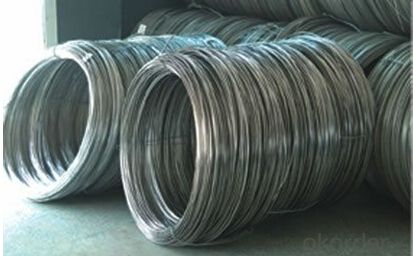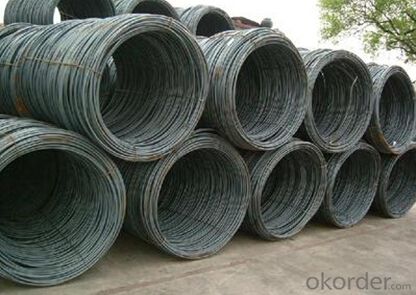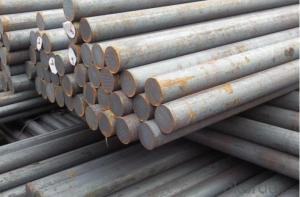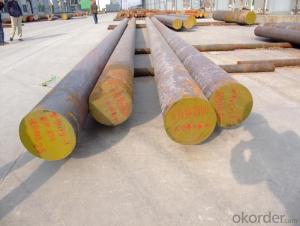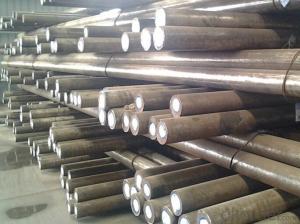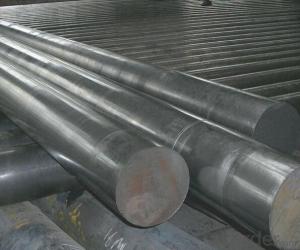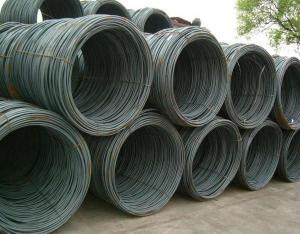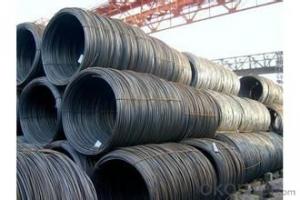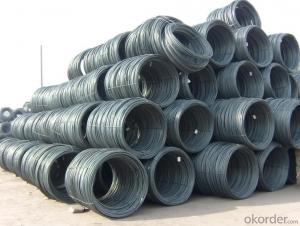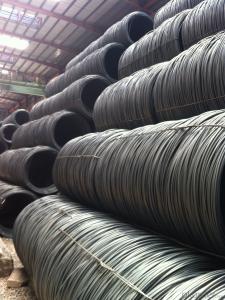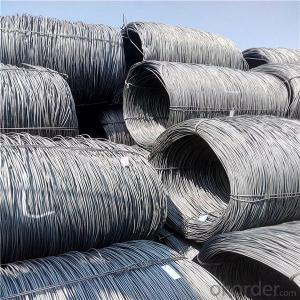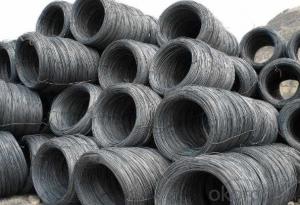Low Carton Steel Wire Rod from China factory
- Loading Port:
- Tianjin
- Payment Terms:
- TT OR LC
- Min Order Qty:
- 3 m.t.
- Supply Capability:
- 10000 m.t./month
OKorder Service Pledge
Quality Product, Order Online Tracking, Timely Delivery
OKorder Financial Service
Credit Rating, Credit Services, Credit Purchasing
You Might Also Like
Specification
Type:
Carbon Steel,Spring Steel,Bearing Steel,Gear Steel,Deformed Steel,Stainless Steel,Alloy Steel
Shape:
Steel Coil,Steel Sheet,Steel Wire Rod,Steel Flat Bar,Steel Square Bar,Steel Angle,Steel Round Bar,Steel Billets
Technique:
Hot Rolled,Cold Rolled,Cold Drawn,ERW,Forged,Saw,Extruded,EFW,Spring
Surface Treatment:
Galvanized,Coated,Copper Coated,Color Coated,Oiled,Dry,Chromed Passivation,Polished,Bright,Black,PVDF Coated
Certification:
ISO,SGS,BV,IBR,RoHS,CE,API,BSI,UL
Thickness:
5.5mm-14mm
Width:
5.5mm-14mm
Length:
In coils
Outer Diameter:
5.5mm-14mm
Net Weight:
2m.t.
Packaging:
Seaworthy packaging
Low Carton Steel Wire Rod from China factory
Detailed Information of the Low Carton Steel Wire Rod from China factory
| Name | Hot Rolled High Carbon Wire Rod |
| Shape | Round Bar/Square Bar/Flat Bar/Plate/Wire |
| Standard | GB/ASTM/SAE/AISI/DIN/JIS/EN/BS |
| Surface Treatment: | Black/Peeling/Polished/Machined |
| Delivery Condition: | Hot Rolled or Forged/Peeled or Black Surface |
| Test | SGS/UT 100% Elements Testing |
| Certificate: | ISO/Mill Certificate |
| Service: | 24 hours online service / |
| more than 20 years trading and manufacture | |
| Quality Assurance: | the third party inspection, such as SGS, BV, TUV…etc. is acceptable |
| Packaging Details: | Seaworthy Packaging or as per customer's packing instruction |
Chemical Composition of the Low Carton Steel Wire Rod from China factory
| Grade | Chemical Composition(%) | |||||
| C | Mn | Si | S | P | B | |
| SAE1006B | 0.03~O.07 | ≤0.32 | ≤0.30 | ≤0.045 | ≤0.040 | >0.0008 |
| Mechanical properties | ||||||
| Yield strength(N/mm2) | Tensile strength(N/mm2) | Elongation(%) | ||||
| 250-280 | 350-380 | ≥32 | ||||
Company Introduction the Low Carton Steel Wire Rod from China factory
CNBM International Corporation is the most import and export platform of CNBM group(China National Building Material Group Corporation) ,which is a state-owned enterprise, ranked in 270th of Fortune Global 500 in 2015.
With its advantages, CNBM International are mainly concentrate on Cement, Glass, Iron and Steel, Ceramics industries and devotes herself for supplying high quality series of refractories as well as technical consultancies and logistics solution.
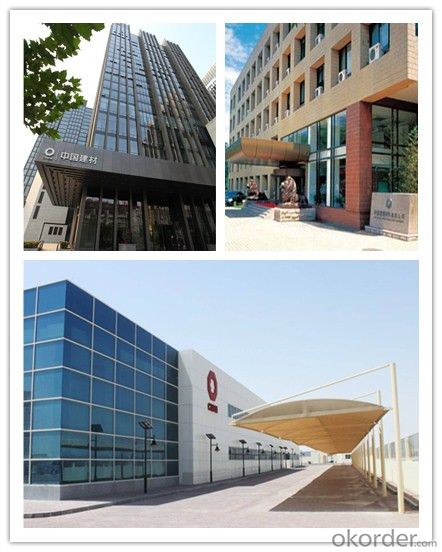
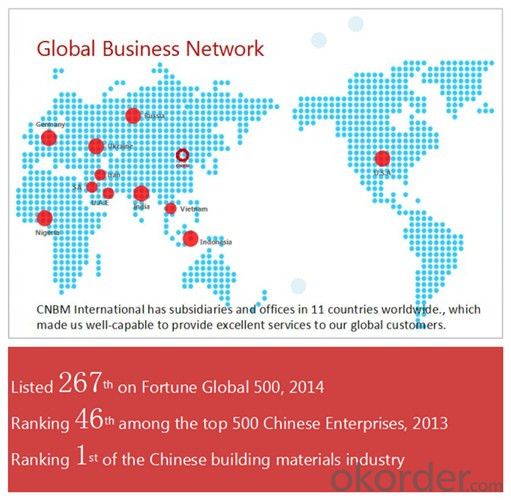
| After-sale service | CNBM provides the services and support you need for every step of our cooperation. We’re the business partners you can trust; you can relax and get on with doing business. |
| For any problem, please kindly contact us at any your convenient time, we’ll reply you in our first priority within 24 hours | |
| Advantages | Industry experience over 20 years. |
| Shipment of goods -More than 70 countries worldwide. | |
| The most convenient transport and prompt delivery. | |
| Competitive price with best service. | |
| High technical production line with top quality products. | |
| High reputation based on best quality products. |
Packaging & Delivery the Low Carton Steel Wire Rod from China factory
| Packaging Detail | Sea worthy packing /as per customer's packing instruction |
| Delivery Detail | 15 ~ 40 days after receiving the deposit |
Products Show
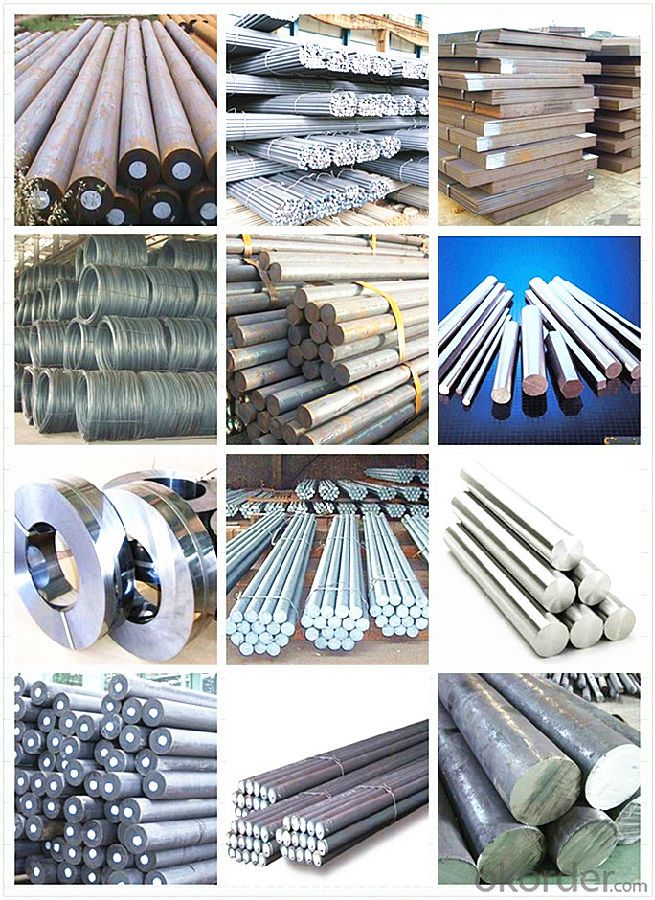
FAQ:
| Are you a trader or manufacturer? | Manufacturer |
| What’s the MOQ? | 3 metric ton |
| What’s your delivery time? | 15-35 days after downpayment received |
| Do you Accept OEM service? | Yes |
| what’s your delivery terms? | FOB/CFR/CIF |
| What's the Payment Terms? | 30% as deposit,70% before shipment by T/T |
| Western Union acceptable for small amount. | |
| L/C acceptable for large amount. | |
| Scrow ,Paybal,Alipay are also ok | |
| Why choose us? | Chose happens because of quality, then price, We can give you both. |
| Additionally, we can also offer professional products inquiry, products knowledge train (for agents), smooth goods delivery, excellent customer solution proposals. | |
| What's your available port of Shipment? | Main Port, China |
| What’s your featured services? | Our service formula: good quality+ good price+ good service=customer's trust |
| Where are your Market? | Covering more than 160 countries in the world |
- Q: What are the main factors affecting the tensile strength of special steel?
- Several factors affect the tensile strength of special steel. Firstly, the chemical composition of the steel plays a vital role in determining its tensile strength. Elements like carbon, manganese, silicon, chromium, nickel, and molybdenum can greatly enhance the steel's ability to resist deformation under tensile loads by forming solid solutions, carbides, and intermetallic compounds. Secondly, the heat treatment processes applied to special steel have a significant impact on its tensile strength. Quenching and tempering, annealing, and precipitation hardening can alter the microstructure of the steel, resulting in specific phases and grain structures that enhance its tensile strength. Moreover, the mechanical working or deformation processes that the steel undergoes can also affect its tensile strength. Techniques such as rolling, forging, or extrusion can refine the grain structure and induce dislocations within the material, leading to an increase in tensile strength. The presence of impurities and defects within the steel can negatively impact its tensile strength. Inclusions, voids, or cracks act as stress concentration points, reducing the overall strength of the material. Therefore, it is crucial to implement proper quality control measures during the manufacturing process to minimize these defects and ensure high tensile strength. Furthermore, the temperature at which the steel is exposed can influence its tensile strength. Special steel typically experiences a decrease in tensile strength as the temperature increases due to thermal expansion and the loss of material strength. Therefore, it is important to consider the temperature range in which the steel will be used and select an appropriate grade with the desired tensile strength. In conclusion, the tensile strength of special steel is affected by various factors, including chemical composition, heat treatment, mechanical working, impurities, defects, and temperature. By considering and optimizing these factors during the manufacturing process, special steel with exceptional tensile strength properties can be achieved.
- Q: What are the properties of high-temperature tool steel?
- High-temperature tool steel possesses properties like exceptional hardness, wear resistance, and high temperature stability. It exhibits excellent strength and toughness at elevated temperatures, making it suitable for applications where tools are subjected to intense heat and stress. The steel retains its hardness and strength even at elevated temperatures, allowing it to maintain its cutting or shaping capabilities. Additionally, high-temperature tool steel has good dimensional stability, ensuring minimal deformation or warping under extreme heat conditions.
- Q: What are the challenges in forging special steel?
- Forging special steel poses several challenges, primarily due to its composition and properties. One challenge is achieving the desired microstructure and alloy distribution throughout the steel during the forging process. Special steels often contain complex alloys, which can be difficult to evenly distribute and maintain during forging. Another challenge is controlling the temperature and heat treatment processes to avoid any detrimental effects on the steel's mechanical properties. Special steels are sensitive to temperature changes, and improper heating or cooling can lead to structural weaknesses or loss of desired properties. Additionally, forging special steels may require specialized equipment and techniques to accommodate their unique characteristics, making the process more intricate and demanding.
- Q: Can special steel be used in the aerospace industry?
- Yes, special steel can be used in the aerospace industry. Special steel alloys, such as stainless steel and high-temperature alloys, are often utilized in the aerospace industry due to their excellent strength, corrosion resistance, and high-temperature capabilities. These properties make special steel an essential material for components like aircraft engines, landing gear, and structural parts, ensuring safety and reliability in the aerospace industry.
- Q: What are the different surface finishing techniques for special steel parts?
- There are several surface finishing techniques for special steel parts, including electroplating, powder coating, painting, polishing, and passivation. Each technique offers unique benefits and can be chosen based on the desired appearance, corrosion resistance, durability, and functionality of the steel parts.
- Q: Can special steel be used in the manufacturing of firearms?
- Yes, special steel can definitely be used in the manufacturing of firearms. In fact, special steel is often preferred for this purpose due to its unique properties that make it suitable for withstanding high temperatures, pressures, and stress. Firearms require materials that are strong, durable, and able to handle the intense forces generated during firing. Special steel alloys, such as stainless steel or heat-treated steel, offer these desired characteristics and are commonly used in the production of firearm barrels, receivers, and other critical components. The use of special steel in firearms manufacturing ensures that the weapons are reliable, safe, and able to perform consistently under various conditions.
- Q: What are the different surface finishing techniques for special steel?
- Some of the different surface finishing techniques for special steel include electroplating, powder coating, passivation, etching, and polishing.
- Q: How does special steel contribute to the dimensional stability of products?
- Special steel is known for its high strength, durability, and resistance to deformation, making it an ideal material for enhancing the dimensional stability of products. By utilizing special steel in the manufacturing process, products are less likely to experience changes in shape or size due to external factors such as temperature fluctuations or mechanical stress. This improved dimensional stability ensures that the products maintain their intended form and functionality over time, leading to increased reliability and customer satisfaction.
- Q: How does special steel contribute to the elasticity of products?
- Special steel contributes to the elasticity of products due to its unique composition and manufacturing process. The elasticity of a material refers to its ability to return to its original shape or size after being deformed or stretched. In the case of special steel, its specific properties enhance the elasticity of products in several ways. Firstly, special steel is often alloyed with elements such as nickel, chromium, or vanadium, which improve its mechanical properties. These alloying elements modify the crystal structure of the steel, resulting in a material that has a higher yield strength and tensile strength. This increased strength allows the steel to withstand higher levels of stress and deformation without permanent deformation or failure. Additionally, the manufacturing process of special steel involves precise control over its microstructure. Through techniques such as heat treatment and cold working, the steel's grain size and distribution are optimized. This controlled microstructure enhances the material's elasticity by promoting a uniform deformation mechanism. When a product made from special steel is subjected to external forces or stress, the steel's microstructure allows for the redistribution of these forces, minimizing localized deformation and maximizing overall elasticity. Furthermore, special steel often possesses a high carbon content, which contributes to its elasticity. The carbon atoms within the steel form strong chemical bonds with the iron atoms, resulting in a material with increased hardness and resistance to deformation. This enhanced resistance to deformation allows the steel to exhibit greater elasticity when subjected to external forces. Overall, special steel's unique composition, precise manufacturing processes, and specific alloying elements all contribute to its ability to enhance the elasticity of products. By incorporating special steel into the design and construction of various products, manufacturers can ensure that these products can withstand deformation and return to their original shape, thus increasing their durability and longevity.
- Q: What are the different methods of non-destructive testing for special steel?
- There are several methods of non-destructive testing (NDT) that can be used to evaluate the quality and integrity of special steel without causing any damage. These methods include: 1. Ultrasonic Testing (UT): This method uses high-frequency sound waves to detect defects, such as cracks or voids, within the special steel. A transducer is used to emit sound waves into the material, and the reflections or echoes are analyzed to identify any anomalies. 2. Magnetic Particle Testing (MT): This technique is based on the principle of magnetic fields and is primarily used to detect surface or near-surface defects in special steel. A magnetic field is induced in the material, and magnetic particles are applied. Any discontinuities or defects will cause the particles to gather, forming visible indications. 3. Liquid Penetrant Testing (PT): This method involves applying a liquid dye or penetrant to the surface of the special steel. The penetrant is drawn into any surface defects through capillary action. After a certain period, excess penetrant is removed, and a developer is applied to make the indications visible. 4. Radiographic Testing (RT): This technique utilizes X-rays or gamma rays to inspect the internal structure of special steel. The material is exposed to radiation, and a film or digital detector captures the transmitted radiation. Any inconsistencies or defects within the material will be visible on the resulting image. 5. Eddy Current Testing (ECT): ECT is mainly used for detecting surface or near-surface defects in special steel. It works by inducing an alternating current into a coil, creating an electromagnetic field. Any variations in the material's electrical conductivity or magnetic permeability caused by defects will generate changes in the coil's impedance, which can be analyzed. 6. Visual Testing (VT): Although not a direct NDT method, visual inspection is often used as a preliminary step to identify surface defects or irregularities in special steel. This method involves a thorough visual examination of the material using appropriate lighting and magnification tools. These different methods of non-destructive testing for special steel provide valuable insights into the material's quality, helping ensure its structural integrity and reliability in various applications. The choice of method depends on factors such as the type of defect being sought, the location of the material, and the specific requirements of the industry or application involved.
Send your message to us
Low Carton Steel Wire Rod from China factory
- Loading Port:
- Tianjin
- Payment Terms:
- TT OR LC
- Min Order Qty:
- 3 m.t.
- Supply Capability:
- 10000 m.t./month
OKorder Service Pledge
Quality Product, Order Online Tracking, Timely Delivery
OKorder Financial Service
Credit Rating, Credit Services, Credit Purchasing
Similar products
Hot products
Hot Searches
Related keywords
